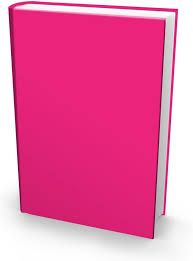PTO - Preferential Traffic Order
- Source: The PTO General Order No. 99 (for
allotment of Wagons) w.e.f 01.04.2025. Unless canceled earlier, it will
remain in force up to 31st March 2026 Please click for RB letter
- Section 70 of the Railways Act, 1989 - First comes
first to serve - Basis for Booking and transportation of Goods. No
priority or No preference
- Section 71 of Railway Act, 1989 - Orders are issued by
Central Government to Railways Administration from time to time - For
giving priority or preference to booking and transportation of particular
types of commodities in the interest of the Nation / Public in General or
for Industrial Development.
- PTO - Preferential Traffic Order - Published by the
Central Govt in Gazette and informed the Railway
Administration.
- The priority route is decided and Goods are carried by
that route only
General Instructions:
- Block Rake traffic is
preferred over Peice-meal Traffic.
- Traffic will have
preference over other Traffic within the same class of Priority in the
following order:
1.
Traffic guaranteed under
special Schemes
2.
Traffic in rakes loaded
from the Good shed of the station having round the clock working
3.
Traffic booked from Full
rake handling siding having mechanized loading facility.
4.
Traffic offered for
distance of more than 600 Kms within the same classification
5.
Single Point Block rakes
over two-point / multipoint mini rakes
6.
Wednesday & Saturday
shall be reserved and notified for allotment of rakes as per the ODR - Date of
Registration irrespective of the class of priority.
7.
Monday & Friday will
be nominated two days for according higher priority to traffic covered
under Premium Indent Scheme
- Any Traffic under special
orders of the Ministry of Railways (Railway Board) / Zonal Railways
|
Priority
|
Traffic
|
|
A
|
Military Traffic sponsored by MILRAIL and
approved by the Railway Board
|
|
B
|
- Emergency Relief works (for
natural calamities like floods, drought, earthquakes etc) -
Sponsored by an Officer, not below the rank of Dy.Secretary of Central /
State Government or by a Non-Government Organisation.
- All Food grains except quota
traffic notified by the Railway Board.
- Levy Sugar for PDS - Public
Distribution System & other welfare programs sponsored by FCI - Food
Corporation of India / State Govts or their agencies approved by the
Railway Board. Proposals for sponsorship of any other commodity by a
Central Govt agency will require specific approval of the Railway
Board.
|
|
C
|
1
|
Coal
|
i) Sponsoring authority is Public Sector Coal
- Accepting authority is ED/RM, Kolkata for ER, ECR, SER, SECR &
ECoR
ii) Sponsoring authority is Private coal
companies - Accepting authority is COM/CFTM of other Zonal Railways
iii) Sponsoring authority is Coal Importers -
Accepting authority is PCOM/CFTM of respective Zonal Railways
|
|
2
|
Iron Ore
|
Sub - Priority
|
Traffic Type
|
|
C +
|
From Customer’s own private siding to his own
private siding at unloading end of for domestic manufacturer
|
|
C
|
One end to other end, the Customer is having
his own private siding at either end for domestic manufacture
|
|
C -
|
One end to the other end, the Customer not
owned by him at both ends.
|
|
3
|
Other than 1 & 2
|
i) Non - refined Edible Salt - For the States
of West Bengal, Assam, Sikkim & Tripura - Sponsored by the
respective State Governments . For the other States - The
Sponsored by Salt Commissioner & Accepted by the Zonal Railways (Amendment
2 to GO.98 dated 02.08.2024)
ii) Common Salt to approved iodization plants
- For the States of West Bengal, Assam, Sikkim & Tripura -
Sponsored by the respective State Governments . For the other
States - The Sponsored by Salt Commissioner & Accepted by the Zonal
Railways (Amendment 2 to GO.98 dated 02.08.2024)
iii) Fertilizer - Sponsored by Fertilizer
manufacturers / Importers - Accepted by the Zonal Railways
iv) POL - Petroleum, Oil & Lubricants -
Sponsored by Oil companies - Accepted by the Railway Board
|
|
D
|
All other Traffic not included in A, B & C
|
Key points for MCQ
- PTO stands for Preferential
Traffic Order
- PTO validity - 1
Year
- PTO - Issued by Central Govt
and published in Gazette
- No of Priorities under PTO -
4
- MIL RAIL - Military wing of the
Railways (Office at Sena Bhawan, Army Hqrs)
- Railways Act - Year 1989 (The
First act in 1890)
- PDS stands for Public
Distribution System
- RMS stands for Raw Material for
Steel plants
- POL stands for Petroleum, Oil,
& Lubricants
- ED/RM - Executive Director Rail
Movement
- SCO stands for Salt
Commissioner Organization - Hqrs - Jaipur
- Salt Commissioner is working
under DPIIT
- DPIIT stands for Department for
Promotion of Industry & Internal Trade (Ministry of Commerce &
Industry)
- Wednesday and Saturday are
fixed for allotment of Rakes as per the date of registration, irrespective
of the class of priority.
- Monday and Friday will be
nominated two days for higher priority to traffic covered under Premium
Indent Scheme.
*****


